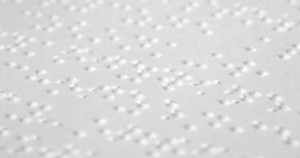
Discussion: Fictional Disabilities
In science-fiction and fantasy, you invariably run into fictional disabilities and allegories. Do these “count” as disability? What makes them work successfully in a book?

In science-fiction and fantasy, you invariably run into fictional disabilities and allegories. Do these “count” as disability? What makes them work successfully in a book?

Heidi Heilig and S. Jae-Jones sit down to talk about the book’s portrayal of bipolar disorder, writing mental illness, and writing with a mental illness.
If our contributors could tell an author writing a character with their disability one thing–besides “do your research”–what would it be?
What kind of tips do our contributors have for authors seeking to respectfully write disabled characters?
Is any representation better than no representation? That argument frequently comes up in response to criticism, but is it valid?

You’re Welcome, Universe author Whitney Gardner sits down with Andrea Shettle and site editor Natasha Razi to discuss her debut novel!

Today we get most forms of entertainment at the push of a button, so we tend to hate having to wait. The situation is even worse if you can’t read print—resulting in an endless waiting game for blind readers.

The world does its best to remove our autism from the mainstream narrative of life, hiding either it or us whenever possible. In the world of fiction, we often see these same attempts.
Disability in Kidlit will be undergoing some changes; a different posting schedule, update on submissions, and social media news.
Disability in Kidlit will be taking a brief two-week hiatus beginning today, but we’ll be back on January 10, 2014 with more excellent posts.